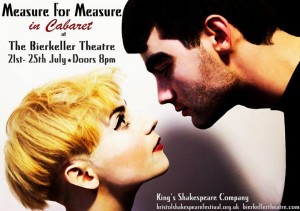On 22.00 on Monday 4 August 2014, Ryoji Ikeda turned-on an installation of a vertical light at Westminster, entitled Spectra, to commemorate the centenary of the entry of Britain into World War I. The light can be seen from many places elsewhere in central London, appearing to curve over the viewer and ending in a burst of brightness. The effect is ominous and hauntingly beautiful, particularly in the early hours of the morning when alone on the streets.
Author Archive for peter
Page 19 of 85
London Life
Some of the crowd waiting to see Yemeni-American video stars Adam Saleh and Sheikh Akbar (aka TruestoryASA) in Hyde Park London on Sunday 3 August 2014. The stars were rescued by police. Report here.

Juju
Wayne Shorter’s album Juju was recorded at the Van Gelder Studio in Englewood Cliffs, New Jersey on 3 August 1964, 50 years ago today. The ensemble comprised Shorter on tenor sax, McCoy Tyner on piano, Reginald Workman on bass, and Elvin Jones on drums. The album has six original compositions, all by Shorter; the modern remastered version has two alternative takes. The music is sublime.
Postscript (added 2024-08-03): 60 years ago today. Still sublime.
London life
London life
Speakers’ Corner, Hyde Park, London.
Rising by sin

On Friday, I was privileged to see a final dress rehearsal of King’s Shakespeare Company’s production of Measure for Measure. Performed as a cabaret, the production is set in Weimar Germany, and the songs make this a production to remember. They are fast, witty, tuneful and memorable expressions of the interior lives of the main characters, and they add a depth of meaning to a play which is otherwise confusing. It is impressive how much intellectual heft and coherence the cabaret setting gives to the play.
The production is directed by Lauren O’Hara, with music by Henry Keynes Carpenter, and the cast includes: Rhia Abbott, Henry Keynes Carpenter, Hannah Elsy, Freddie Fullerton, Serena Grasso, William Holyhead, and Rupert Sadler. The production is only on for five nights, tomorrow Monday 21 July to Friday 25 July 2014, at the Bierkeller in Bristol. Go see it if you are anywhere nearby.

Lucy Corley has a review here.
Rigour and speculation in pure math
On the categories email list on 5 March 2006, Ronald Brown quoted the following paragraph on mathematical speculation from a letter dated 14 June 1983 which he had received from Alexander Grothendieck:
Continue reading ‘Rigour and speculation in pure math’
The Lamberts
From sometime before 1933 right down to the present day, members of my family have had on their walls reproductions of George Lambert’s 1899 Wynne-Prize-winning painting Across the Black Soil Plains, and so this image is part of my cultural heritage. (Image due to AGNSW.)
George Washington Thomas Lambert (1873-1930) was an Australian artist born, after his father had died, in St Petersburg of an American father and English mother. The family emigrated to New South Wales in 1887. In Australia, he is most famous for his painting, Across the Black Soil Plains, now in the Art Gallery of New South Wales, which was based on his time living at Warren, NSW. During WWI, he was an official Australian war artist.
George’s son, Leonard Constant Lambert (1905-1951) was a jazz-age British composer and conductor, and co-founder of Sadler’s Wells dance company. Constant’s son, Christopher (“Kit”) Sebastian Lambert (1935-1981) was a record producer and manager, and part-creator of rock band, The Who.
Sad that son and grandson both died in their 46th year.
Recent Reading 11
The latest in a sequence of lists of recently-read books.
Francis King [1970]: A Domestic Animal. Faber Finds, 2014. A well-written account of unrequited love that becomes an obsession. Both the plot and the dialogue are, at times, unbelievable, although the obsession and the emotions it provokes in holder and object are very credible.
Continue reading ‘Recent Reading 11’
The Beats: Australian responses
An excerpt from a 1959 Australian Broadcasting Commission TV programme on the Beats, featuring interviews with Sydney University students, Clive James and Robert Hughes (pictured, image from ABC).

